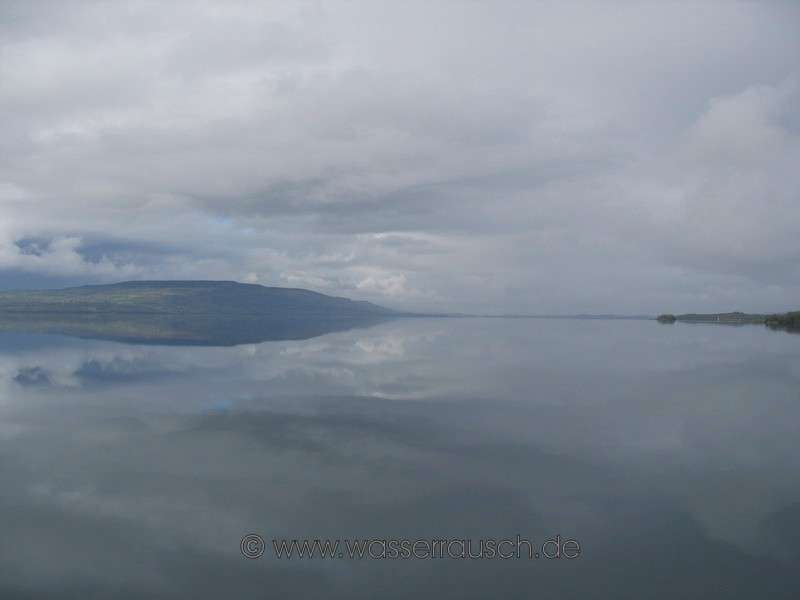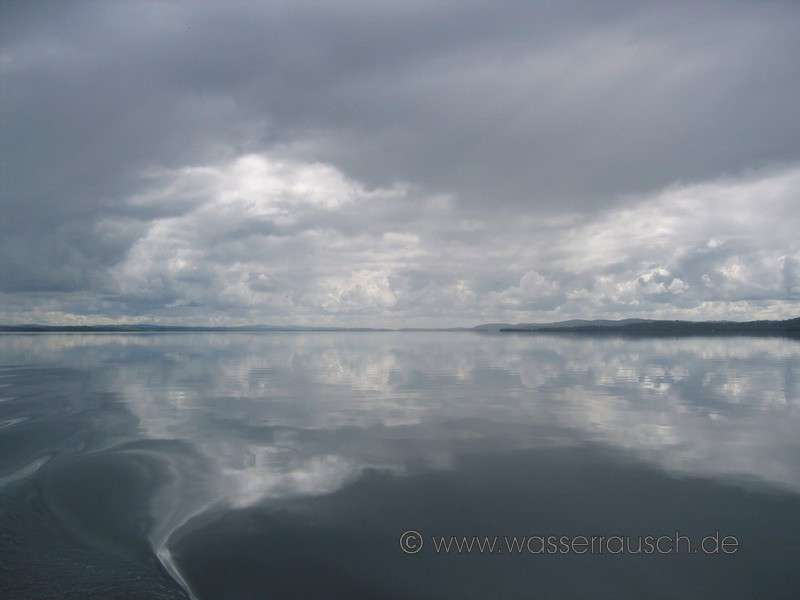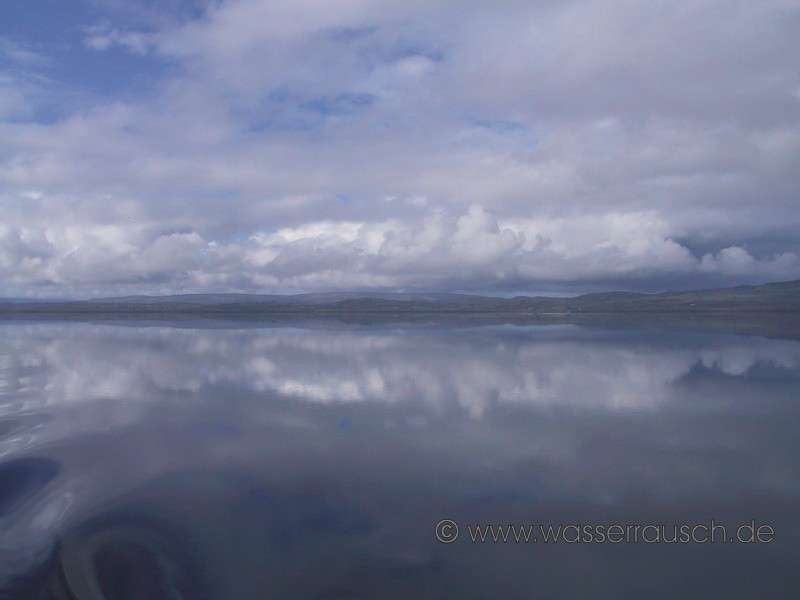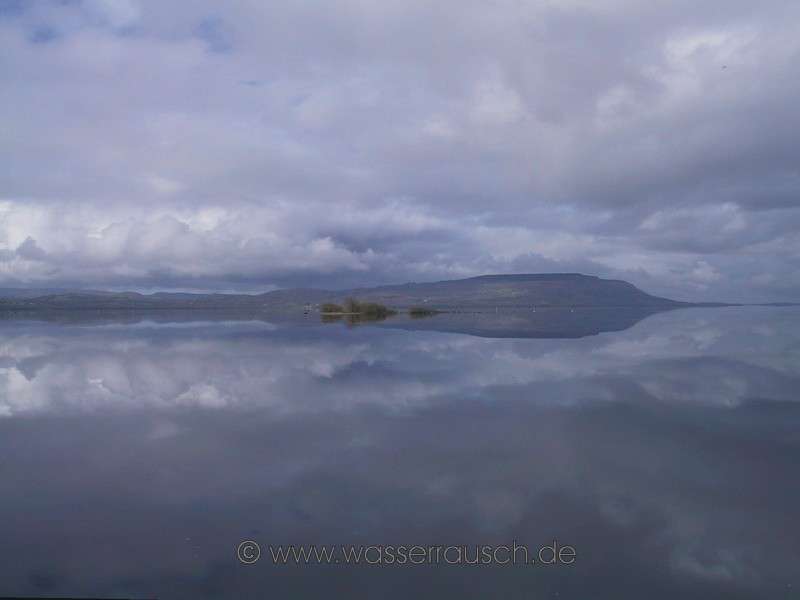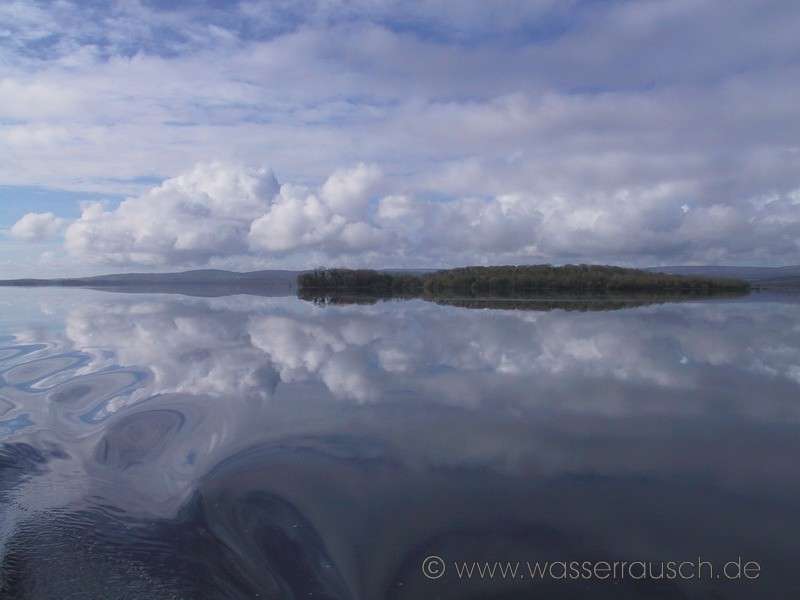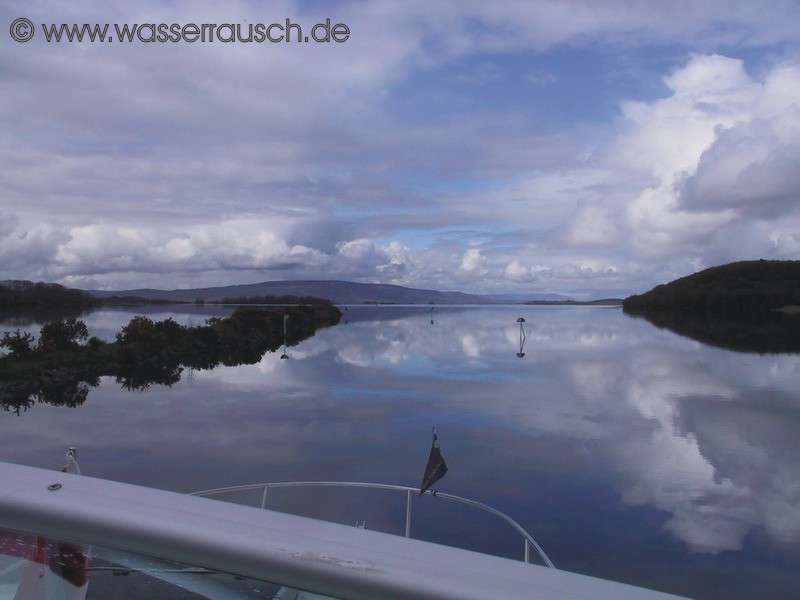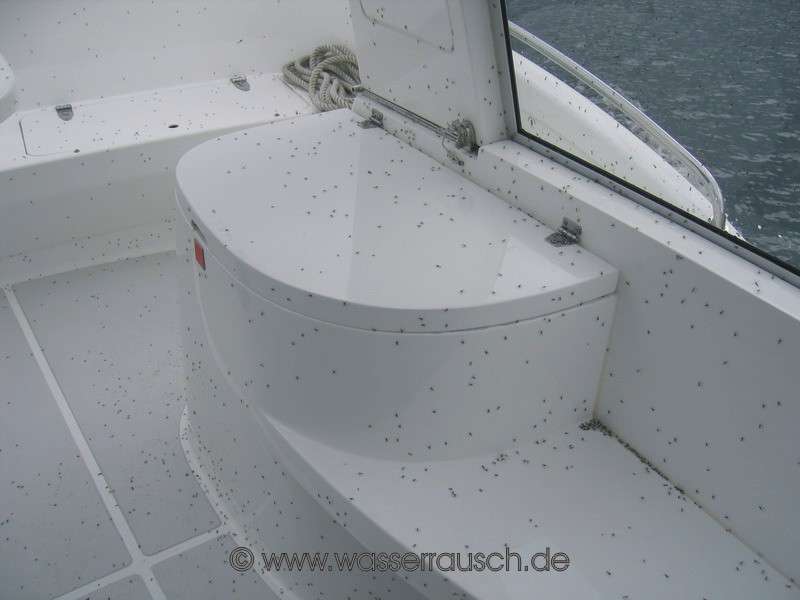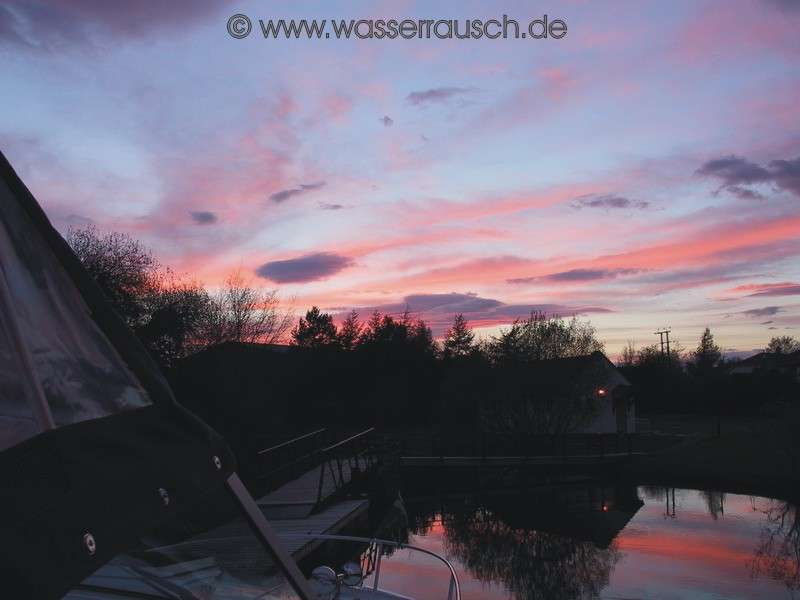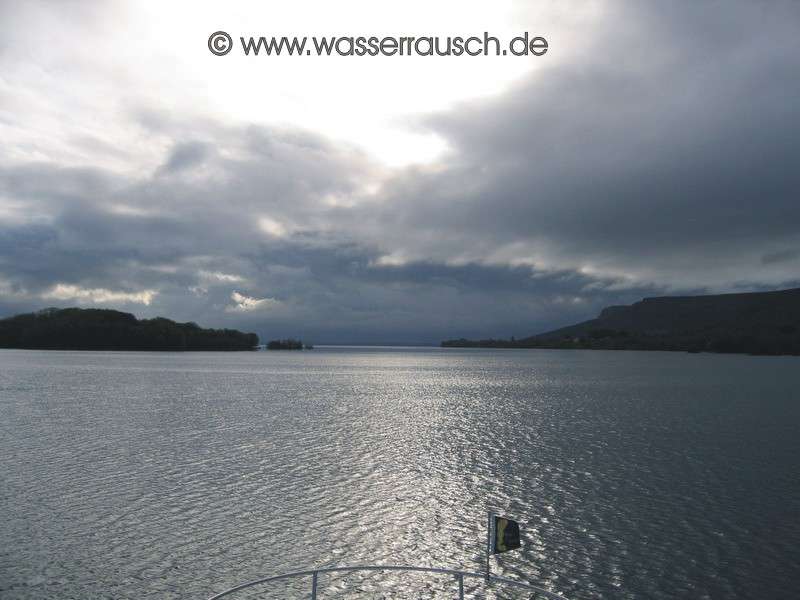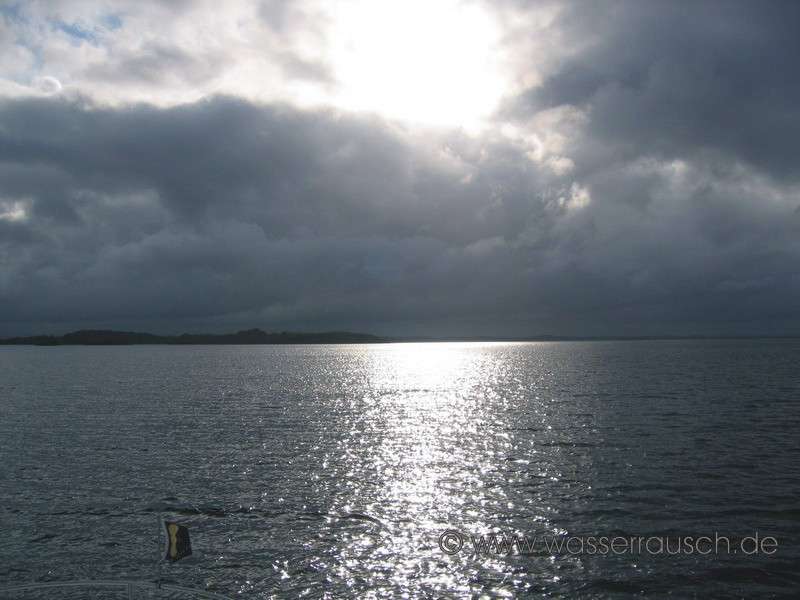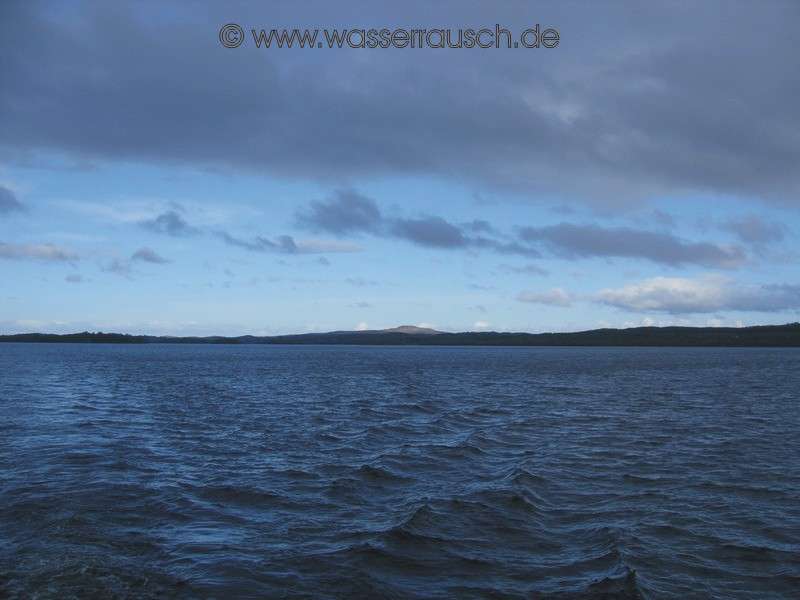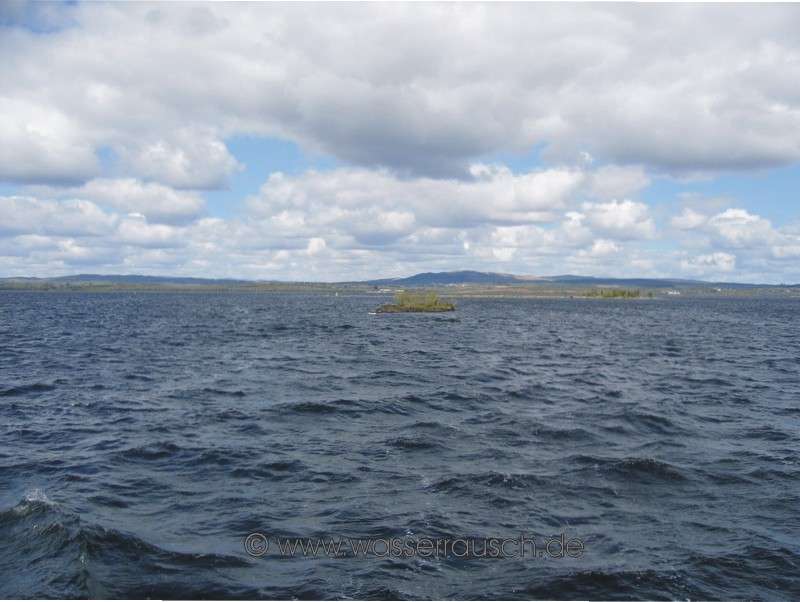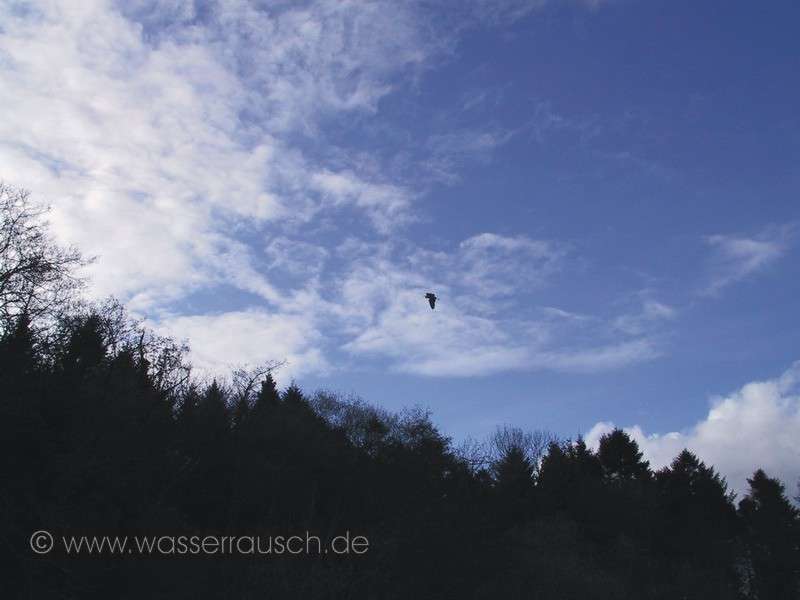 |
 |
The boat trip in April 2008 |
|
Log book Ireland April 2008
|
|
|
|
|
|
Tuesday 29.04.2008 Davy´s Island - Kesh - Belleek Length of boat trip: 3.9 hours Motto of the day: A glassy lake and midges as unquestioned hitchhikers The water is glassy. From the North there are clouds pushing up but on the Lower the sky remains stubbornly blue. We cruise on the calm lake and choose the outer way to Kesh in the northeast. The Broad Lough is shown in all its vastness and beauty. We go up the small river Kesh, which winds a few kilometres to the village of Kesh. At the jetty below the bridge is also the end of the navigation. After shopping, we go back downstream and through the narrow navigation channel through the debris area on the Lower and keep a westerly direction along Lusty More. The Broad Lough is quiet without a hint of wind. Lake, islands and the surrounding landscape are formed in the last ice age. The powerful ice has shaped a termination edge on the southern shores and as a result of this, the steep Magho Cliffs, of limestone and quartzite, are widely visible over the Broad Lough, along which we are now driving to the west (Map 1). The cliffs are part of the dramatic Knockmore karst landscape on the southern shore, where many Neolithic settlements are found. From the shallower (on average 12 m deep) southeast end, the funnel-shaped Lower Lough Erne extends to the northwest and further again west to a majestic sheet of water, with its deepest point nearly 62 metres below Magho Cliffs. This pre-glacial eroded valley reaches far below the present sea level and was filled up with huge amounts of water after the last ice age. The clear and cool water offers an ideal trout habitat and fly fishers on small motor boats try to catch these predators of the water.
Then we reach the also funnel-shaped narrowing western end of the Broad Lough and continue on the channelled river to Belleek at the western end of navigation, where we moor in the protected harbour for the rest of the day and the night. There are many stories how the Erne has been given its name. It would fill pages to mention them all. The early name of the river Erne was Samhaoir. The name of the island Inish Samer; Inis Samhaoir; island of the Ernes; at Ballyshannon remembers it. Here again, there are numerous legends, how the name was formed. Whether Samhaoir (Sameer) can referred to a subsidiary of Finn MacCool (Fionn MacCúmhaill) or whether another of the many legends is true, will never be figured out. One of the mythological legends, however, seems to me particularly interesting: Partholan was one of the first settlers of the country well before the year 0 of our time. He landed on an island below the falls of Assaroe at Ballyshannon, where the Erne, which was rich in salmon before the construction of the power plant, flows to sea. Partholan, jealous of his wife’s faithful dog, killed Samhaoir in a fit of rage. After that river and lake get the name Samhaoir. The waterfall in Ballyshannon was called An t-Samhaoir, which later changed in Eas Aodh Ruaidh or Assaroe. Wednesday 30.04.2008 Belleek - Lusty Beg - Davy´s Island Length of boat trip: 3.3 hours Motto of the day: The first mayfly on the last day in April We have some sunny spells. We are heading back east. After the canal, we reach the Lower, not glassy like yesterday, but first there are only slight waves.
The northern shore of the Lower Lough Erne is flatter than the southern and gives long rage views into the Omagh Uplands and the southeastern hills of Donegal, which offer a varied panorama. Taking a look, for example, from the middle of the lake to the small river Kesh, with the village of the same name, you discover the 336 m high Tappaghan on the border to Omagh with its 13 wind turbines, producing the energy for about 12,000 households. In a F4 we return to the islands in the east of the lake and moor again at Davy's Island. The herons are still hard at work building their nest. |
Mainpage Wasserrausch Contact Imprint
Copyright Tina und Willi Klug 2008

